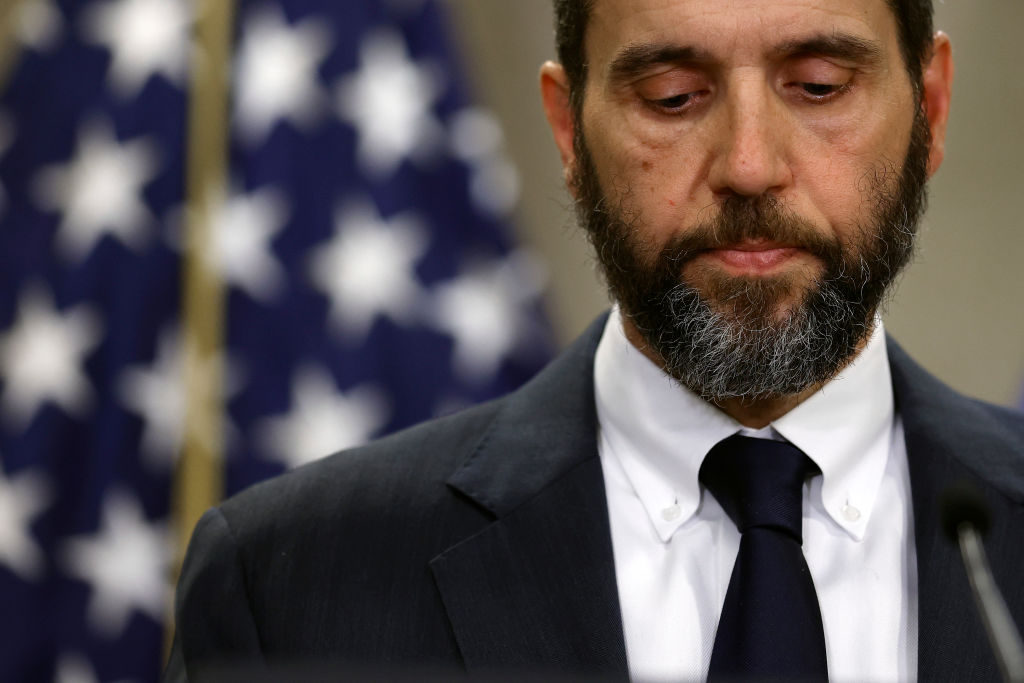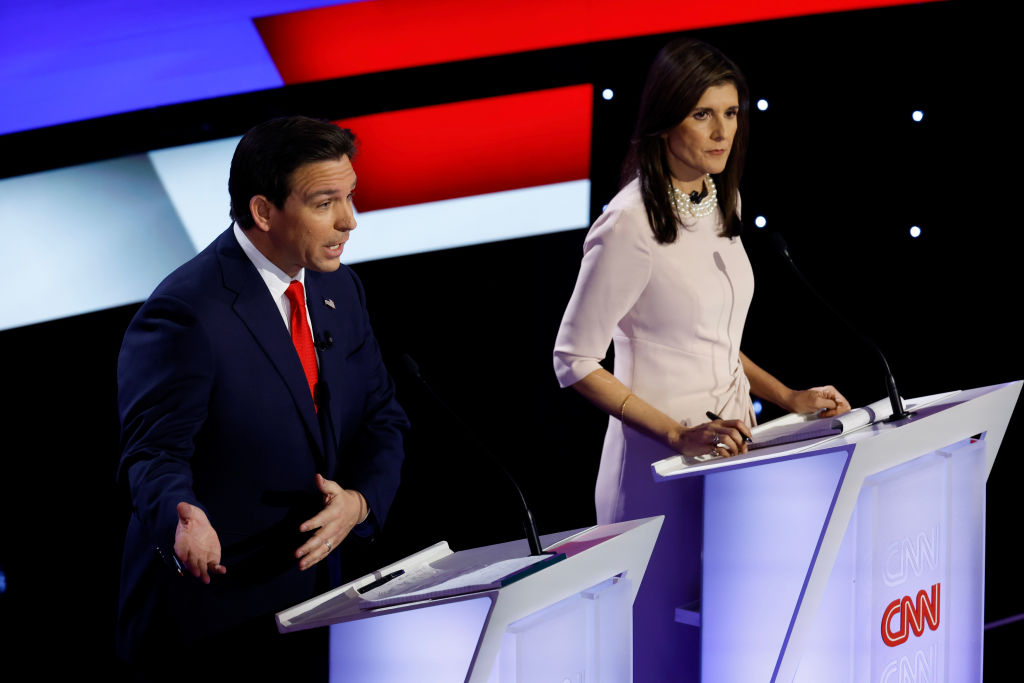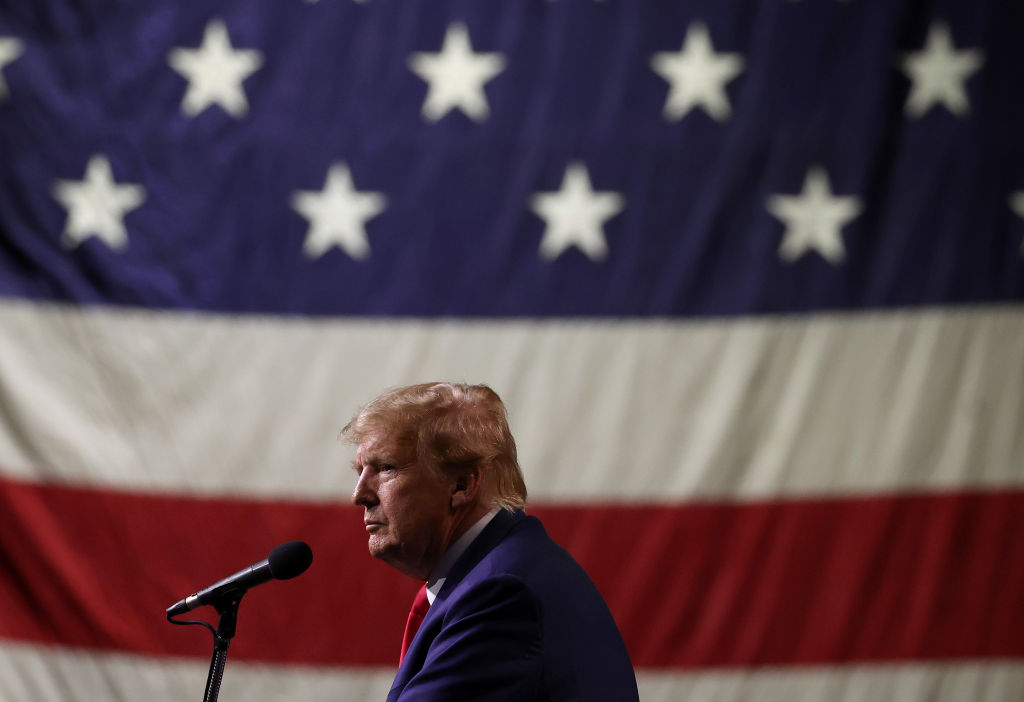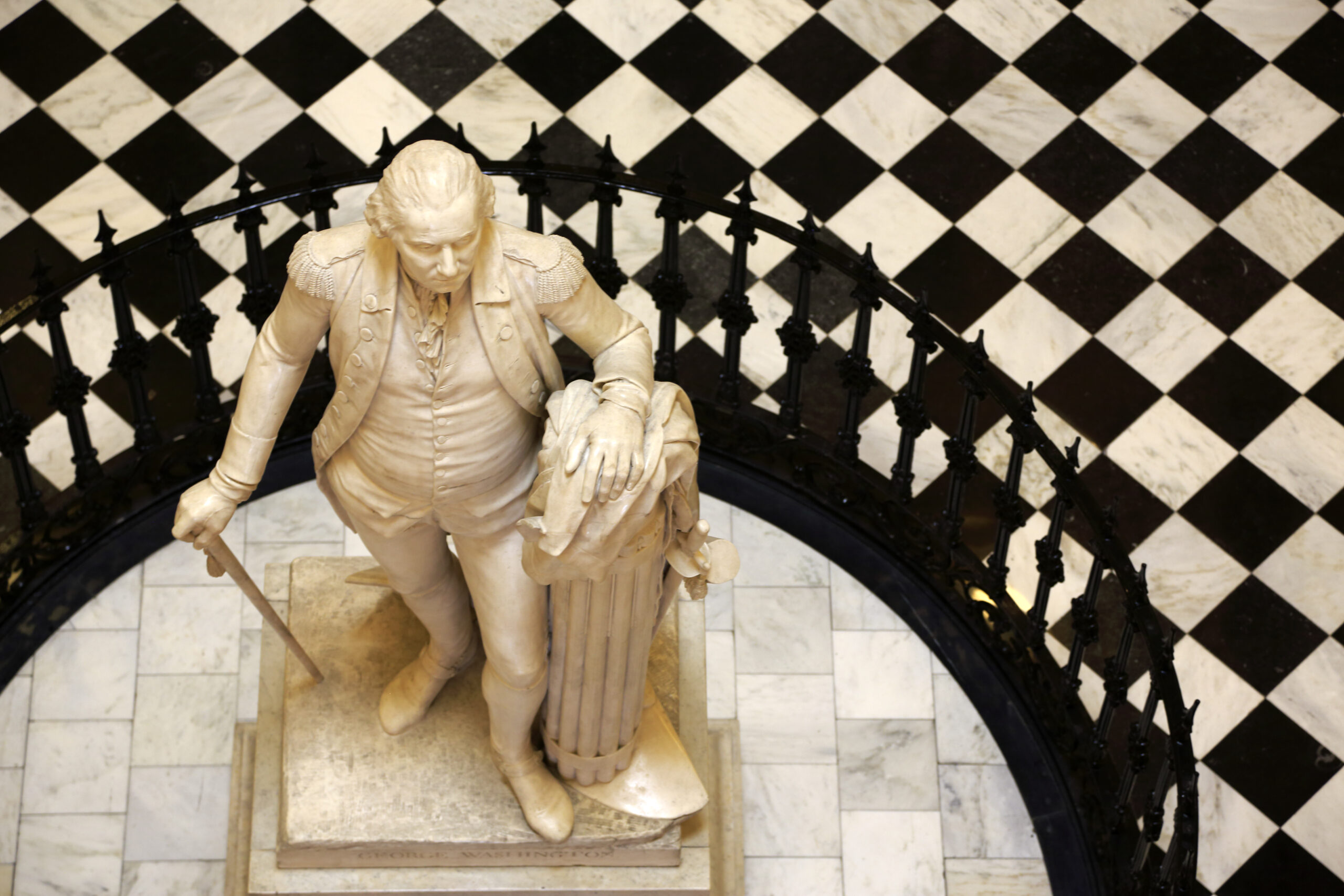Jack Smith’s indictments of Donald Trump are unconstitutional because he was already tried in the Senate.
To Give or Not to Give…Thanks

The Founders' debate over Thanksgiving.
By September 25, 1789, the U.S. House of Representatives had only been operating for about six months under the Constitution. They were meeting in New York, as they would continue to do until the government was moved to Philadelphia the following year, and then to what became Washington, D.C. Everything was new and uncertain.
On that day in September, Elias Boudinot, a representative from New Jersey, introduced a resolution:
That a joint committee of both Houses be directed to wait upon the President of the United States, to request that he would recommend to the people of the United States a day of public thanksgiving and prayer to be observed by acknowledging, with grateful hearts, the many signal favors of Almighty God, especially by affording them an opportunity peaceably to establish a Constitution of government for their safety and happiness.
Not everyone thought this Thanksgiving business was a good idea. Aedanus Burke of South Carolina “did not like this mimicking of European customs, where they made a mere mockery of thanksgivings.”Thomas Tudor Tucker, also of South Carolina,
thought the House had no business to interfere in a matter which did not concern them. Why should the President direct the people to do what, perhaps, they have no mind to do? They may not be inclined to return thanks for a Constitution until they have experienced that it promotes their safety and happiness.
“We do not yet know,” Tucker said, “but they may have reason to be dissatisfied” with the Constitution. Anyway “it is a religious matter,” and Congress should have nothing to do with it. If there was going to be any thanksgiving, “let it be done by the…States.”
How wonderfully American to have a congressional debate about whether or not to say thank you.
As if to prove that the Constitution was not quite worthy of gratitude, on that same day, September 25, 1789, Congress proposed to the state legislatures 12 amendments to the Constitution. Two were not ratified, but the ten that eventually were became known as the Bill of Rights. These 12 proposed amendments were largely the product of James Madison’s constitutional statesmanship, whittling down the scores of amendments proposed by several states during the ratification debates. These amendments certainly were expressions of much dissatisfaction with the proposed Constitution before it even got off the ground. So great was the dissatisfaction that only 11 states were represented in Congress on September 25, 1789; North Carolina and Rhode Island had still not ratified the Constitution. Congress’s proposed amendments helped pave the way for its ratification, maybe even giving them reason to be thankful.
In any case, the thanksgivers in the House prevailed, the Senate came along, and a resolution was presented to President Washington, who, at the request of Congress, issued a proclamation on October 3, assigning
Thursday the 26th. day of November next to be devoted by the People of these States to the service of that great and glorious Being, who is the beneficent Author of all the good that was, that is, or that will be. That we may then all unite in rendering unto him our sincere and humble thanks, for his kind care and protection of the People of this country previous to their becoming a Nation, for the signal and manifold mercies, and the favorable interpositions of his providence, which we experienced in the course and conclusion of the late war, for the great degree of tranquillity, union, and plenty, which we have since enjoyed, for the peaceable and rational manner in which we have been enabled to establish constitutions of government for our safety and happiness, and particularly the national One now lately instituted, for the civil and religious liberty with which we are blessed, and the means we have of acquiring and diffusing useful knowledge and in general for all the great and various favors which he hath been pleased to confer upon us.
It wasn’t until Abraham Lincoln proclaimed a day of national Thanksgiving in 1863, in the midst of the Civil War, that the practice took hold and seems to have been put beyond debate. Every president since has issued a Thanksgiving proclamation every year. The fourth Thursday in November was made a legal Thanksgiving holiday by an act of Congress signed into law by President Franklin Roosevelt on November 26, 1941, two weeks before the attack on Pearl Harbor.
Among the things for which we may be thankful, then, is that the country is still around to give thanks. And it seems fitting that this annual occasion is also traditionally a time of humble prayer that we may be worthy of the blessings of liberty for which we are so grateful.
The American Mind presents a range of perspectives. Views are writers’ own and do not necessarily represent those of The Claremont Institute.
The American Mind is a publication of the Claremont Institute, a non-profit 501(c)(3) organization, dedicated to restoring the principles of the American Founding to their rightful, preeminent authority in our national life. Interested in supporting our work? Gifts to the Claremont Institute are tax-deductible.
A clarifying exchange.
Voters, not private litigants, should get to decide if Trump is re-elected in 2024.
Official conservatism would rather harumph about dissidence than address core issues.
The moral limits of our constitutional order.
On tradition, rights, and what justifies them.






